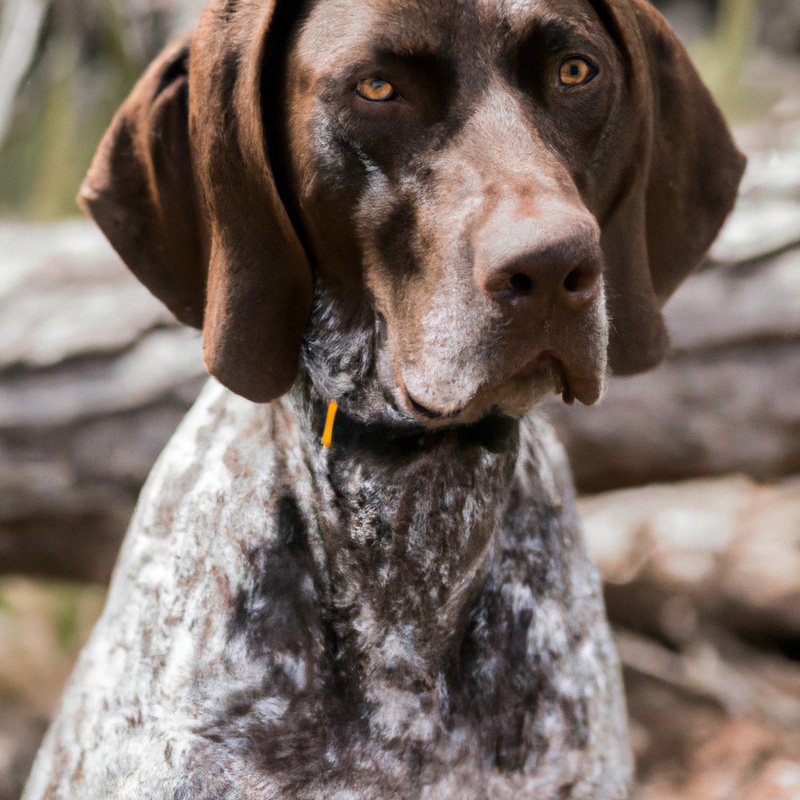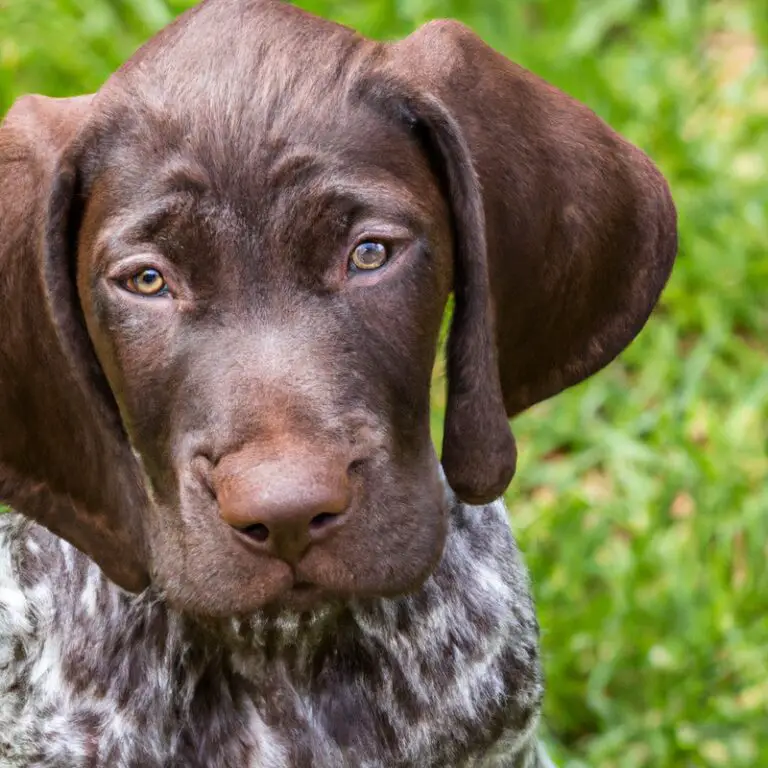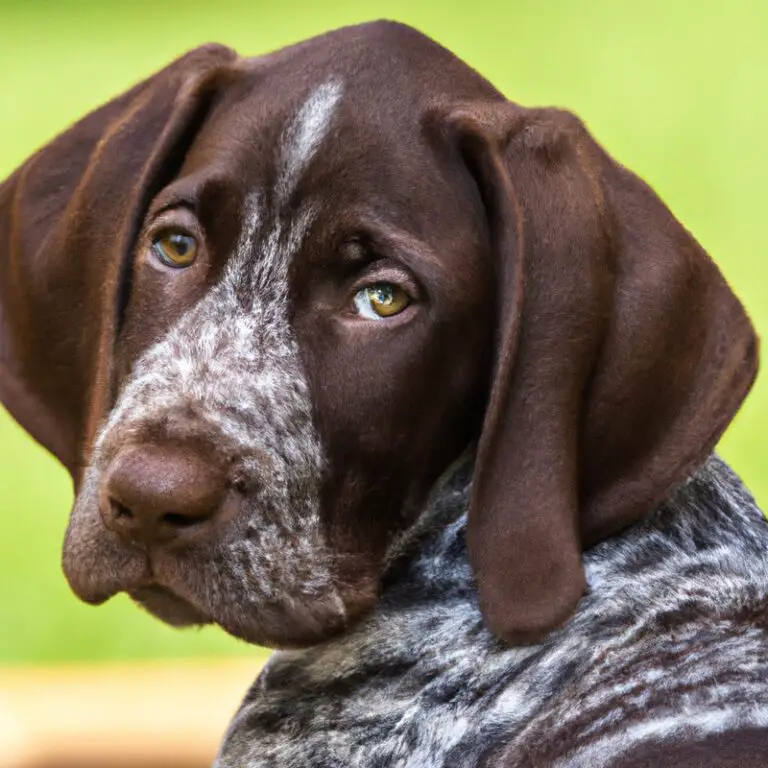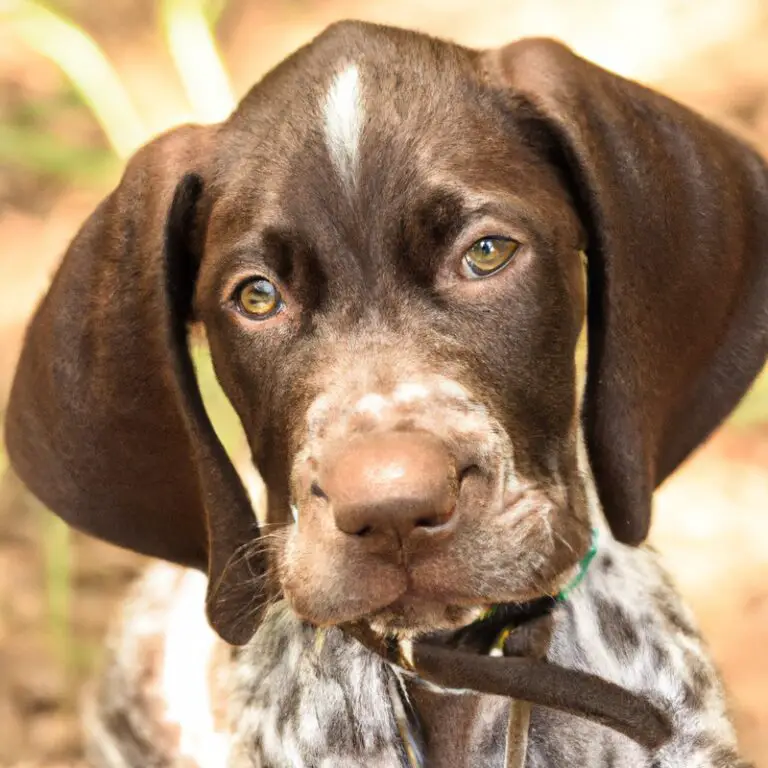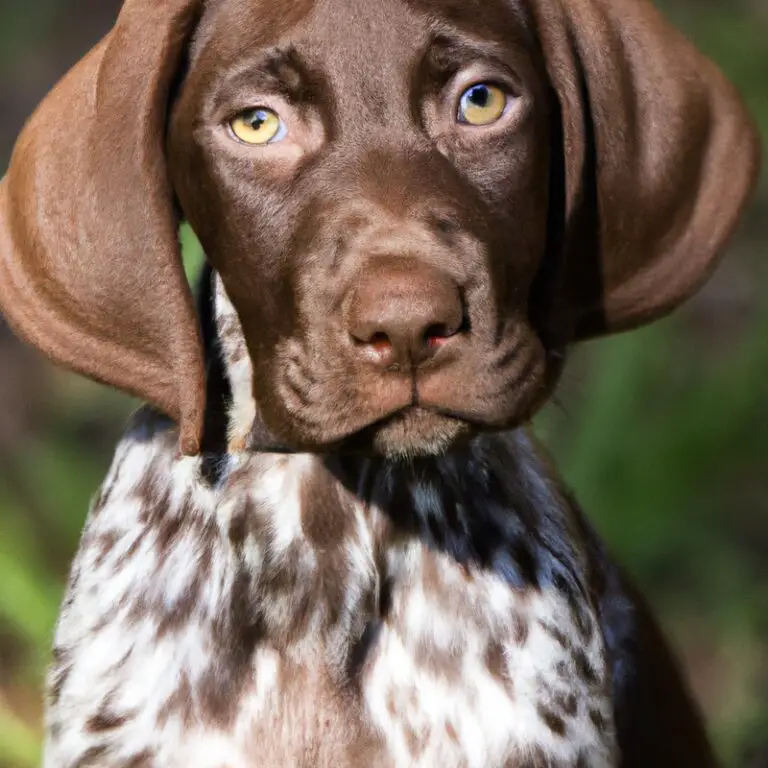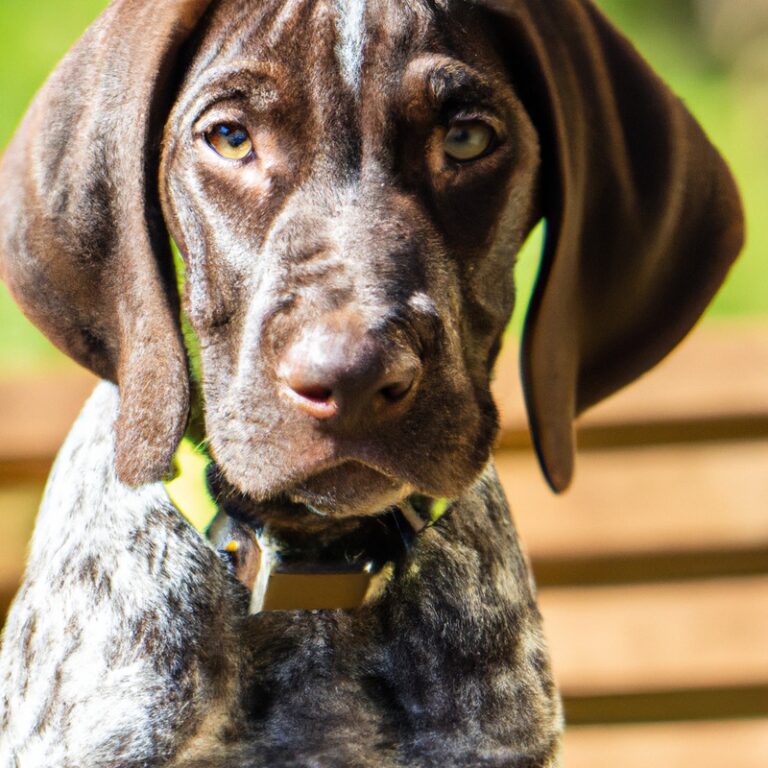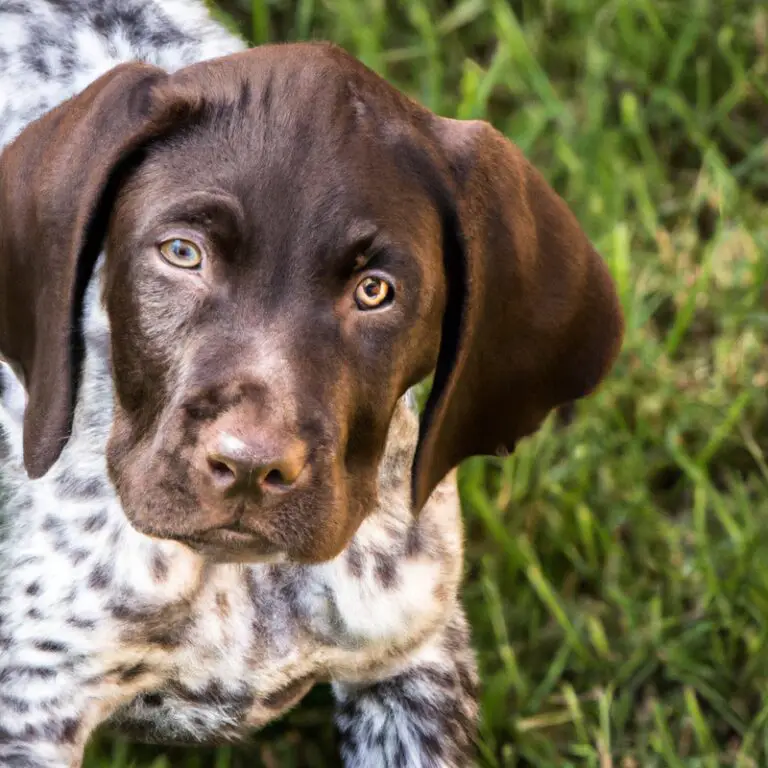How Can I Socialize My German Shorthaired Pointer With Other Dogs?
Key Takeaways:
- Gradually introduce your German Shorthaired Pointer to other dogs in controlled and positive environments to help them socialize effectively.
- Use positive reinforcement techniques, such as treats and praise, to reward good behavior when your German Shorthaired Pointer interacts well with other dogs.
- Give your German Shorthaired Pointer plenty of opportunities to engage in supervised play and socialize with other dogs to promote healthy interactions and minimize fear or aggression.
- Seek professional guidance from a dog trainer or behaviorist if you encounter challenges or difficulties while socializing your German Shorthaired Pointer with other dogs.
Are you struggling to socialize your German Shorthaired Pointer with other dogs? I’ve been there, and I know how challenging it can be.
But fear not, because I’m here to guide you through the process and show you the ropes.
In this article, I’ll share practical tips and strategies to help you socialize your German Shorthaired Pointer successfully. We’ll explore the importance of socialization, the benefits it offers, and how to overcome common challenges along the way.
Whether your GSP is fearful, reactive, or possessive, we’ll address it all.
So let’s dive in and help your furry friend become a social butterfly!
| Methods | Pros | Cons |
| 1. Puppy Socialization Classes | – Provides a controlled environment for socializing – Allows puppies to learn appropriate behavior – Supervised by professional trainers | – May be expensive – Limited availability – Requires commitment to attending classes regularly |
| 2. Dog Parks | – Provides a chance for off-leash play – Exposure to various dog breeds – Opportunity to interact with different personalities | – Unpredictable behavior of other dogs – Lack of control over the environment – Possibility of encountering aggressive or poorly-behaved dogs |
| 3. Set Up Playdates | – Controlled environment for socializing – Allows interaction with specific dogs – Tailored to your German Shorthaired Pointer’s needs | – Requires finding compatible dogs – Time-consuming to arrange – May need to try multiple playmates |
| 4. Obedience Classes | – Teaches obedience and socialization simultaneously – Provides structure and guidance – Opportunity to practice good behavior with distractions | – Not focused solely on socializing – May not have interactions with all types of dogs – May not address specific concerns or fears |
Why Socializing Your German Shorthaired Pointer is Important
The Benefits of Socializing Your German Shorthaired Pointer
Socializing your German Shorthaired Pointer has many benefits.
- Builds Confidence: Through regular interactions with other dogs, your GSP will gain confidence and become more comfortable in various social situations.
- Reduces Aggression: Socialization helps prevent aggression towards other dogs, as it teaches your GSP proper manners and communication skills.
- Enhances Training: A well-socialized GSP is easier to train. By exposing them to different dogs, they learn to listen and follow commands more effectively.
- Prevents Behavioral Issues: Socialization reduces the risk of behavioral issues, such as separation anxiety, excessive barking, and destructive behavior.
- Positive Relationship: Socializing your German Shorthaired Pointer allows them to form positive relationships with other dogs, resulting in happier and healthier interactions at parks, walks, and playdates.
Tips for Socializing Your German Shorthaired Pointer with Other Dogs
Gradual Introductions: Taking it Slow and Steady
When it comes to socializing your German Shorthaired Pointer with other dogs, gradual introductions are key. Taking it slow and steady will help ensure a positive experience for both your dog and the other dogs they meet.
Here are some tips for successful gradual introductions:
- Start with calm and controlled environments, such as a quiet park or a controlled doggy playgroup. Avoid crowded or chaotic areas, as they can be overwhelming for your dog.
- Keep your dog on a leash during the initial introductions. This will give you control and allow you to gauge their reactions.
- Allow your dog to approach other dogs at their own pace. Give them space and avoid forcing the interaction. This will help build trust and confidence.
- Watch for signs of stress or discomfort, such as raised hackles, growling, or stiff body posture. If you see these signs, calmly remove your dog from the situation and try again later.
Remember, every dog is different, so the pace of socialization may vary. Be patient and celebrate small victories along the way.
With time and patience, your German Shorthaired Pointer can learn to enjoy the company of other dogs.
Positive Reinforcement: Rewarding Good Behavior
Positive reinforcement is an effective way to encourage and reward good behavior in your German Shorthaired Pointer when socializing with other dogs. Here are some tips on how to implement it:
- Treats: Carry small, delicious treats with you during socialization sessions. Whenever your dog demonstrates positive behavior, such as being calm or friendly towards other dogs, immediately reward them with a treat. This will associate good behavior with a tasty reward.
- Verbal praise: Along with treats, use verbal praise to reinforce your dog’s good behavior. Give them enthusiastic, encouraging words like “good job!” or “well done!” This will further reinforce their positive actions and let them know they’re doing the right thing.
- Playtime and affection: In addition to treats and praise, use playtime and affection as rewards for good behavior. Allow your dog to interact and play with other dogs as a way of reinforcing their positive social behavior. Petting and cuddling after a successful interaction will also reinforce their good behavior.
Remember, consistency is key when using positive reinforcement. Reward your German Shorthaired Pointer every time they exhibit good behavior during socialization sessions.
By doing so, you’ll help to build a positive and confident attitude towards other dogs.
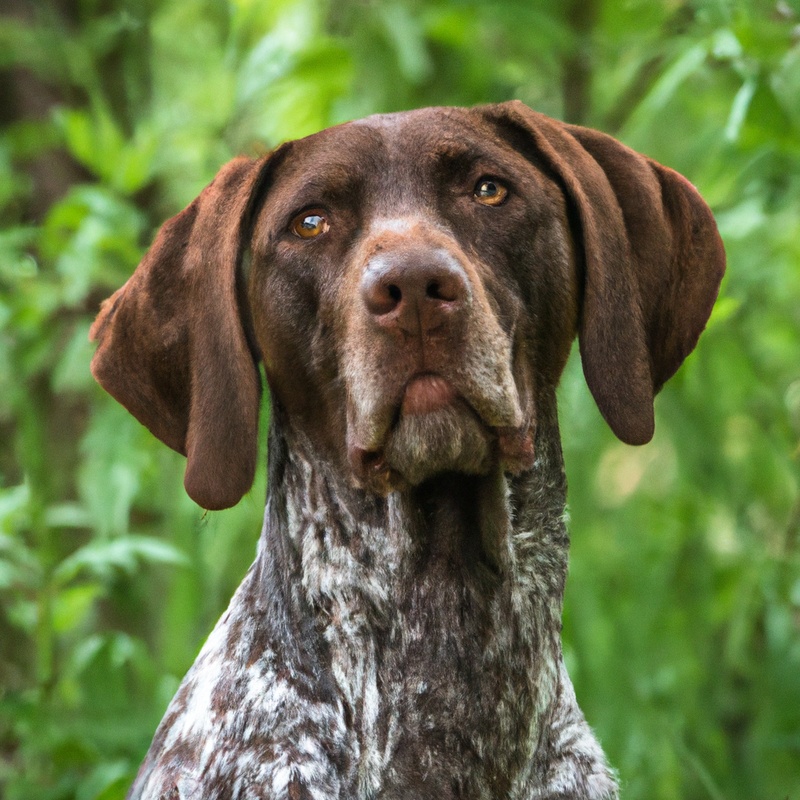
Controlled Environments: Choosing the Right Places for Socialization
Choosing the right places for socializing your German Shorthaired Pointer is important for a positive experience. Here are some tips for finding controlled environments:
- Dog parks: Look for well-maintained dog parks with separate areas for large and small dogs. This allows you to introduce your GSP to dogs of different sizes at their own pace.
- Training classes: Consider enrolling your GSP in obedience or socialization classes. These structured environments provide controlled interactions with other dogs under the supervision of a trainer.
- Playdates with familiar dogs: Arrange get-togethers with dogs that your GSP is already familiar with. This allows them to socialize in a comfortable and safe setting.
- Controlled introductions: When introducing your GSP to new dogs, choose neutral territory where neither dog feels territorial. This can help prevent any potential conflicts.
Remember, the focus is on positive experiences and gradual exposure to other dogs. Enjoy the process and watch your GSP thrive in their socialization journey!
Supervision and Monitoring: Safety First
Supervision and monitoring are key when it comes to socializing your German Shorthaired Pointer with other dogs. Safety should always be your top priority.
Here are some tips to keep in mind:
- Stay alert: Keep a close eye on your dog’s behavior and body language during interactions with other dogs. Look out for signs of fear, aggression, or discomfort.
- Keep interactions positive: Encourage gentle and friendly interactions between your dog and others. Reward good behavior with treats and praise.
- Use a leash: Keep your dog on a leash during early interactions, especially if you’re unsure how they will react. This provides control and prevents any potential accidents.
- Start with familiar dogs: Begin socializing your German Shorthaired Pointer with dogs you know are friendly and well-behaved. This helps build their confidence.
- Gradually introduce new dogs: Slowly introduce your dog to new dogs, one at a time, in controlled environments. This allows them to adjust and become comfortable.
Remember, socializing your German Shorthaired Pointer requires patience and consistency. With proper supervision and monitoring, you can ensure their safety and create positive experiences for them while socializing with other dogs.
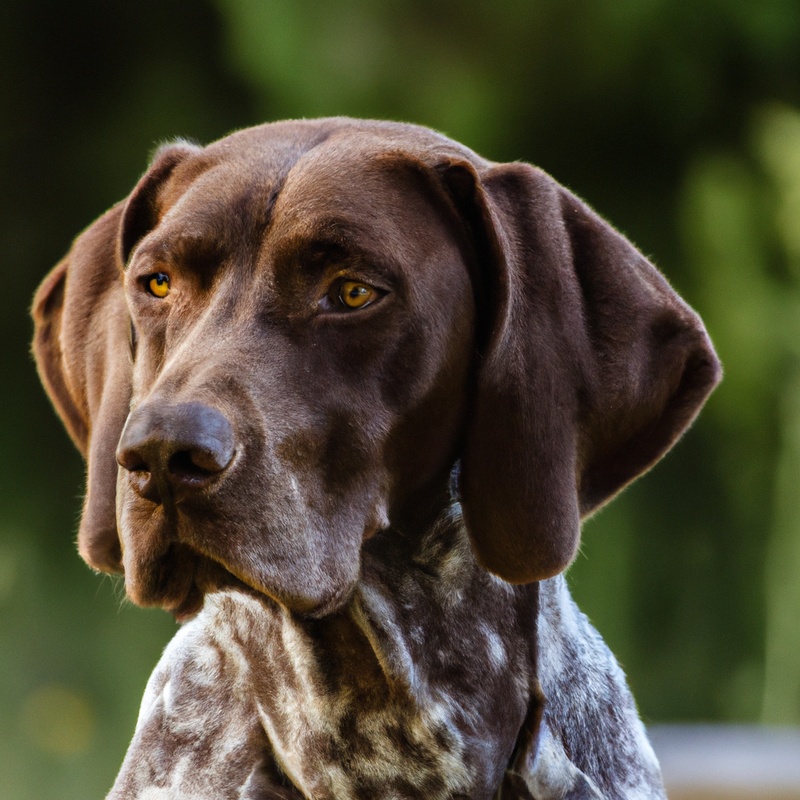
Common Challenges in Socializing Your German Shorthaired Pointer
Fear or Aggression: Dealing with Reactive Behavior
Dealing with reactive behavior, such as fear or aggression, in your German Shorthaired Pointer is a common challenge when socializing them with other dogs. To help address this issue, it is important to understand your dog’s triggers and work on desensitization and counter-conditioning techniques.
Gradually exposing your dog to controlled socialization situations and rewarding positive behavior can help them overcome their reactive tendencies.
Seek guidance from a professional dog trainer or behaviorist who can provide personalized advice and support throughout the process. Remember, patience and consistency are key when dealing with reactive behavior.
Overexcitement: Managing High Energy Levels
One common challenge in socializing your German Shorthaired Pointer is managing their high energy levels and overexcitement. Here are some tips to help you address this issue:
- Regular exercise: Provide your German Shorthaired Pointer with plenty of physical exercise to help burn off excess energy. Daily walks, runs, or play sessions are essential for keeping them calm and balanced.
- Mental stimulation: In addition to physical exercise, engage your dog’s mind through interactive toys, puzzle games, or training sessions. This will help tire them out mentally and prevent boredom.
- Obedience training: Teach your German Shorthaired Pointer basic commands and reinforce them consistently. This will not only help them focus but also give you better control during socialization encounters.
- Desensitization: Gradually expose your dog to new environments, people, and other dogs in a controlled manner. Start with calm and non-threatening situations, and gradually increase the level of exposure as your dog becomes more comfortable and less overexcited.
- Positive reinforcement: Reward your dog’s calm and composed behavior with treats, praise, and affection. This will help them associate being calm with positive experiences and motivate them to stay relaxed in social situations.
Remember, managing your German Shorthaired Pointer’s high energy levels and overexcitement is a process that requires time, patience, and consistency. With proper training and socialization, you can help your dog become more well-behaved and enjoy positive interactions with other dogs.
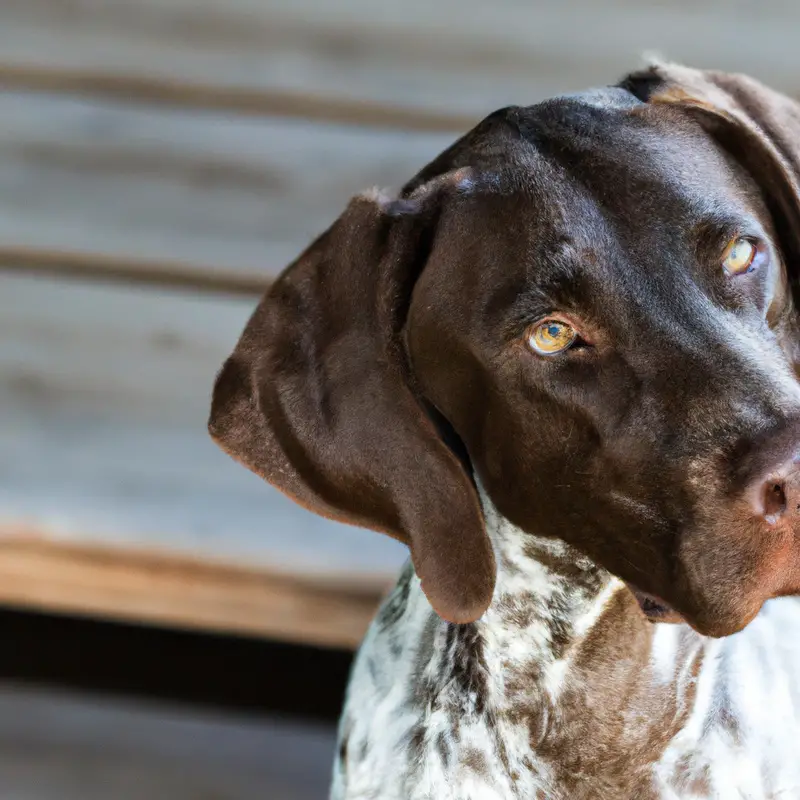
Resource Guarding: Addressing Possessive Behaviors
Resource guarding is a common behavior in dogs, including German Shorthaired Pointers. Here are some strategies to address possessive behaviors:
- Start early: Begin socializing your German Shorthaired Pointer from an early age. Expose them to different people, dogs, and environments to reduce the likelihood of resource guarding.
- Positive reinforcement: Reward your dog with treats and praise when they exhibit non-possessive behavior. This will help them associate sharing with positive outcomes.
- Gradual desensitization: Gradually expose your dog to situations where they may feel the need to guard their resources. Start with low-value items and gradually work your way up to high-value ones, while rewarding appropriate behavior.
- Trade-up exercises: Teach your dog that giving up a resource leads to a better one. Offer a high-value treat or toy in exchange for the item they are guarding.
- Seek professional help: If the possessive behavior persists or becomes aggressive, consult a professional dog trainer or behaviorist. They can provide specific techniques and guidance tailored to your dog’s needs.
Remember, addressing resource guarding requires patience and consistency. With proper training and positive reinforcement, you can help your German Shorthaired Pointer overcome possessive behaviors and become a well-socialized dog.
Seeking Professional Help for Socialization Issues
When to Consult a Professional Trainer or Behaviorist
If you’re struggling to socialize your German Shorthaired Pointer with other dogs, it may be time to call in a professional trainer or behaviorist. Here are a few signs that indicate it’s time to seek professional help:
- Aggressive behavior: If your dog is displaying aggressive behavior towards other dogs, such as growling, snapping, or lunging, it’s important to consult a professional. They can help you understand the root cause of the aggression and work on strategies to manage it.
- Fear or anxiety: If your dog shows fear or anxiety when encountering other dogs, it’s important to seek help. A professional trainer or behaviorist can help you identify the underlying reasons for their fear and develop a plan to desensitize and counter-condition your dog to feel more comfortable around other dogs.
- Lack of progress: If you’ve been working on socializing your dog for some time but haven’t seen any progress, it may be time to bring in an expert. They can assess your dog’s behavior, identify any gaps in your training approach, and provide guidance on how to make progress.
Remember, every dog is unique, and what works for one may not work for another. A professional trainer or behaviorist can provide tailored advice and techniques to help you and your dog overcome socialization issues and build positive interactions with other dogs.
Importance of Professional Training in Socializing Your GSP
Professional training plays a crucial role in socializing your German Shorthaired Pointer (GSP). It helps your dog become comfortable and confident around other dogs, preventing any aggressive or fearful behaviors.
Here’s why professional training is important in socializing your GSP:
- Expert Guidance: Professional trainers have the knowledge and experience to guide you and your dog through the socialization process. They understand the specific needs of GSPs and can provide tailored strategies for effective socialization.
- Structured Environment: Training programs create a structured environment where your GSP can learn and practice proper social behaviors. This controlled setting allows the trainer to address any issues and help your dog develop positive interactions with other dogs.
- Exposure to Various Dogs: Professional training offers opportunities for your GSP to interact with different breeds, sizes, and temperaments of dogs. This exposure helps your dog become more adaptable and comfortable in various social situations.
- Positive Reinforcement: Trainers use positive reinforcement techniques to reward and reinforce good behavior during socialization. This encourages your GSP to associate positive experiences with other dogs, promoting a positive and friendly attitude.
- Safety Measures: Trainers prioritize safety during socialization sessions, ensuring that interactions are supervised and controlled. They can effectively manage any potential conflicts or undesirable behavior, creating a safe environment for both your dog and others.
Incorporating professional training for socializing your GSP will give you the tools and guidance needed to ensure a positive and successful socialization experience for your furry friend.
Finding the Right Professional for Your German Shorthaired Pointer
Finding the right professional to help socialize your German Shorthaired Pointer is important. Look for someone experienced with dog behavior and training, specifically in socialization techniques.
Here are some tips to consider:
- Seek recommendations: Ask your veterinarian, local dog clubs, or other dog owners for recommendations on professionals who specialize in dog socialization.
- Research and interview: Take the time to research and interview potential professionals. Ask about their experience, training methods, and success stories with socializing dogs.
- Visit their facility: If the professional has a facility, visit it to see the environment your dog will be in. Make sure it is clean, safe, and conducive to positive socialization.
- Observe their techniques: When you visit or attend a training session, observe how the professional interacts with dogs. Look for positive reinforcement methods and a focus on building confidence and trust.
- Trust your gut: Ultimately, trust your instincts when choosing a professional. Ensure that you feel comfortable with their approach and confident in their ability to help your German Shorthaired Pointer socialize effectively.
Remember, finding the right professional can make a significant difference in your dog’s socialization journey. Take the time to choose someone who aligns with your goals and can provide the support your German Shorthaired Pointer needs.
Maintaining Socialization Skills in Your German Shorthaired Pointer
Consistency is Key: Continuing Socialization Throughout Your GSP’s Life
Consistency is key when it comes to continuing socialization throughout your German Shorthaired Pointer’s life. By consistently exposing your GSP to different dogs, people, and environments, you can help them maintain their socialization skills and prevent them from becoming fearful or aggressive towards others.
Regularly taking your GSP to dog parks, obedience classes, or playdates with other dogs can provide valuable opportunities for socialization.
Additionally, incorporating positive reinforcement and rewards during these interactions can help reinforce good behavior and further enhance your GSP’s social skills. Remember, socialization is an ongoing process, so be sure to continue exposing your GSP to new experiences throughout their life.
Regular Exercise and Enrichment: Keeping Your GSP Well-Socialized
Regular exercise and enrichment play a vital role in keeping your German Shorthaired Pointer (GSP) well-socialized. By providing your GSP with plenty of physical and mental stimulation, you can help them develop and maintain good socialization skills.
Here are some tips to achieve this:
- Take them for daily walks or jogs: Regular exercise not only helps burn off excess energy but also exposes your GSP to different environments, sights, and sounds. This exposure can help them become more comfortable and confident when encountering other dogs.
- Engage in interactive play: Play interactive games like fetch or tug-of-war with your GSP. This not only helps in bonding with them but also stimulates their mind and keeps them mentally engaged.
- Organize playdates: Set up playdates with other friendly and well-socialized dogs. This allows your GSP to interact and socialize with other dogs in a controlled environment, promoting positive social behavior.
- Enroll in obedience classes: Obedience classes provide structured socialization opportunities for your GSP. They learn how to interact with other dogs under the guidance of a professional trainer, helping them develop proper social skills.
- Provide mental enrichment: Use puzzle toys, treat-dispensing toys, or engage in scent work activities to challenge and stimulate your GSP’s mind. This helps prevent boredom and keeps them mentally sharp.
Remember, consistency is key. By incorporating regular exercise and enrichment into your GSP’s routine, you can help maintain their socialization skills and ensure they are well-adjusted and friendly towards other dogs.
Reinforcing Positive Social Interactions: Practicing Good Manners
Reinforcing positive social interactions is key to practicing good manners with your German Shorthaired Pointer. Here are some tips to help you with that:
- Use positive reinforcement: Reward your dog with treats, praise, and playtime when they exhibit good behavior during social interactions with other dogs. This will reinforce their positive behavior and encourage them to continue behaving well.
- Start with controlled introductions: Gradually introduce your German Shorthaired Pointer to other dogs in controlled environments such as a dog park or a friend’s backyard. This will allow them to socialize and learn how to interact with other dogs in a safe and supervised setting.
- Encourage polite greetings: Teach your dog to approach other dogs calmly and politely. Discourage jumping or excessive excitement during greetings. Instead, encourage them to approach slowly and sniff respectfully to establish a positive interaction.
- Supervise playtime: While it’s important to let your dog play and socialize with other dogs, make sure to supervise their interactions. Intervene if any aggressive or inappropriate behavior arises, and redirect their attention to more positive interactions.
- Practice regular socialization: Regularly expose your German Shorthaired Pointer to different environments, people, and dogs. This will help them become more comfortable and confident in various social situations.
By following these tips, you can reinforce positive social interactions and help your German Shorthaired Pointer develop good manners when interacting with other dogs.
Final Verdict
Socializing your German Shorthaired Pointer with other dogs is crucial for their overall well-being and behavior. By gradually introducing them to new dogs, using positive reinforcement, choosing controlled environments, and providing supervision, you can help them develop positive social skills.
Addressing common challenges such as fear, overexcitement, and resource guarding is important for successful socialization.
Consultation with a professional trainer or behaviorist can provide valuable guidance. To maintain their socialization skills, consistency, regular exercise, and reinforcing positive interactions are essential.
By following these tips, you’ll ensure a happy and well-socialized German Shorthaired Pointer for life.
Trust in the information presented and take action to nurture your dog’s socialization skills.

